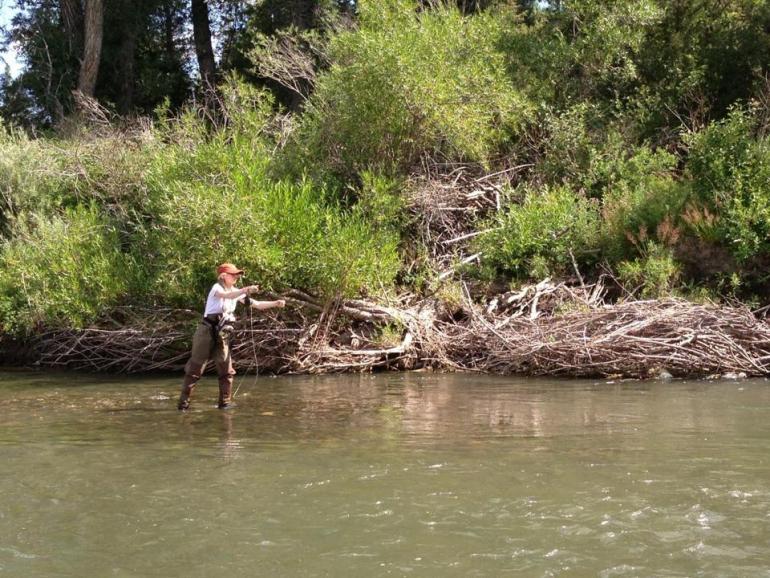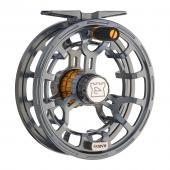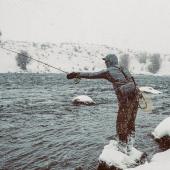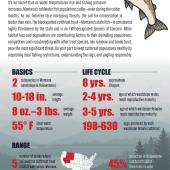Honey Ants
The sweet swarm that changes everything.
The rise is a curious one. Devoid of all precision and subtlety, the violent splash is trailed by a vacuum, capturing the surface tension in a brief and distinct whirlpool. It reminds you of caddis, but the hydrodynamic aftermath tells a different story. In the half second that unfolds, you don't even see the fish, but you know it's big.
If you've never seen this phenomenon, you may scratch your head and continue plying the water. Look closely, though, and you'll see what the fuss is about as a cinnamon-colored morsel floats by, its wings helplessly stuck in its back in the surface film, its legs furiously wriggling. The honey ants have arrived. Thank you, God.
The sweetness of this event is fortified by its circumstances. From the season opener to the beginning of August, the rivers get pounded like a two-bit pugilist from Palookaville. The festival rages for weeks with a parade of drakes, caddis, pale morning duns, callabaetis, and flavs. Rod wavers from all over the world have come and gone in droves, leaving the fish thoroughly picked over and freaked out, making an already difficult situation downright unsavory. Add the building heat of August and dropping water levels, and you might consider just moving on to another place. Most people do just that, leaving the banks to a few hopeful and patient anglers.
Yet the queen is restless. A subterranean stirring begins as daytime temperatures climb. In a fateful moment, she summons her sergeants and issues her command: Release the drones. The males take flight and are joined by her highness for a mating frenzy. Because there happens to be a lot of fornication involved, the queen can be somewhat fickle about fornication. Whether she wants millions of males all in her business is entirely up to her. In some years the queen may simply refresh her high ball on the nightstand, pull down the eyeshade, and tell the boys to put those things away. But if she's feeling appropriately saucy, she'll take flight with her male companions, and proceed to have lots of sex. Ahem.
If you are male and have lived in remote parts of the West, you can identify with male-to-female ratios that create lots of wanting and very little getting. Your odds are merely five-or six-to-one at worst. Imagine a million to one. Now that's competition. So no wonder most of these drones find themselves floating upside down in the river, cockblocked and confused over the injustice of it all.
Yet, it's hard to feel sorry for them. After all, the end product of the queen's decision is a dormant spring creek transformed. The fish are everywhere, and whatever discretion they learned through the weeks of angling pressure is quickly forgotten. Presentation is hardly the issue here. Your fly could be making a wake like a Cleveland-bound cement barge on Lake Erie, and the fish would still find the need to slam it. The fire hydrant-size rainbow you've been working for the last two hours—presenting every flavor of mini CDC via contorted reach casts and downstream drifts—has now decided that what it really wants is a rust-colored, no-frills, size 14 ant. The absurdity is compounded when you learn that you aren't even imitating an ant to begin with.
Wait, huh?
Well, let's get a few things clear here. These might be ants. They're shaped like ants, but they have a mutated aspect to them, with an abdomen that is more bulbous than you would expect, and with wings that seem more bee-like. Some refer to them as "aquatic wasps," which seems to fit while also assigning an element of ferocity. Regardless of the identity crisis, when these bugs come around, you are simply too busy fishing to care much about what they are. And since the trout will eat the ant pattern readily, entomology takes a back seat to simply what works.
If you find yourself a participant in this spectacle, consider yourself one of the lucky few. It may occur off and on for weeks, several days in a row, one single afternoon, or even not at all. Predicting the emergence involves a lot of serious juju. Consulting your local oracle, laying out the tea leaves, and praying to false idols all being reasonable efforts but no substitute to just being on the river as much as possible through August and September. It may occur off and on for weeks, several days in a row, one single afternoon, or even not at all.
If these insects do come, it will be when you least expect it. When you have given up all hope underneath the blazing sun, the fantastic rise will break the glassy water before you. Cinnamon delights will float by as you are transported to a place of unimaginable wonder. When it's finished, you'll find yourself back on the bank, crazed and marveling at the sweet trembling of your hands, the thunderous gallop within your chest, and the good fortune of being alive.











